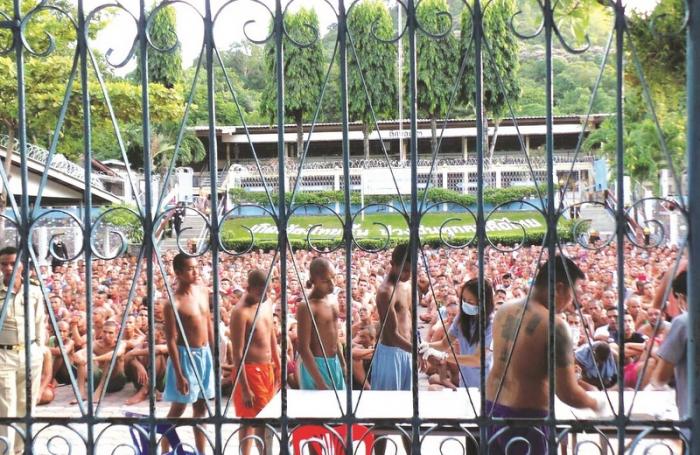Law, Life and Society: The real cost of incarceration

PHUKET: Last month, Justice Minister Paiboon Koomchaya announced that methamphetamine will be removed from the list of Category 1 hard narcotics. It was met with controversy but it is a welcome change to a policy that has devastated Thai society.
According to the Corrections Department, Thailand has a prison population of 371,347 which is the 8th largest prison population in the world and accounts for about 40 per cent of the those incarcerated in Southeast Asia. About 70 per cent of the Thai prison population is in for drug related crimes.
The most commonly used illegal methamphetamine is ya bah. It is generally taken orally, but can also be inhaled or injected. The drug is addictive and habit forming. It is a stimulant that can keep users awake for days and generate hallucinations. The drug is harmful, but being found guilty of possession of ya bah can be more destructive. When ya bah was categorized as a hard narcotic, a finding of guilt could result in up to 10 years in prison.
It is generally accepted that incarceration is required by a civil society to maintain order and protection from individuals whose release could be dangerous to the general public. But there is a cost to incarceration. With hundreds of thousands of individuals locked up, the public is required to expend large amounts of financial resources to house, feed and supervise them, as well as provide health services. These financial resources should be redirected to preventing serious crimes like violence, theft, embezzlement, and other crimes with victims.
There is also a social cost to incarceration. Men and women are taken away from their community, friends and family, resulting in a social void. Families are disrupted. Children are without their parents. Men and women are without their spouses or loved ones. Parents are left without their children. Without the family unit, there is a reduction in household income, as well as an increase in poverty, parentless children and unsupported elderly. In addition, the fear of incarceration prevents some drug abusers from seeking assistance for their addiction.
We are not saying that Thailand should get rid of jails or prisons. However, the law should take into account the social and economic costs of incarcerating non-violent drug offenders. Community service and treatment is a better alternative for those convicted of the use of narcotics. Justice Minister Paiboon Koomchaya has moved in the right direction.
There should be examination of other prohibited drugs to see if alternative penalties would be a better option in light of the social and financial costs of incarceration.
Until the law changes, foreigners visiting or living in Thailand should not consume illegal narcotics or be in situations where they can be a victim of a drug scam. There are multiple cases of foreigners claiming that they have had drugs planted on them for extortion purposes. We personally know of an Australian man who was in a hotel room with a girl in a red light area when the police entered the room. The police claimed that he was in possession of illegal drugs, which they found hidden in the room.
The threat of incarceration in Thailand’s overcrowded jails is an easy tool for extortion. My advice for foreigners is to stay away from using illegal drugs, excessive drinking and red light areas.
For foreigners who ignore this advice, they should keep the phone number of a trusted local English-speaking criminal attorney and the number of their local embassy with them. Following an arrest, signing documents or making pleas without understanding the language or consequences can result in long-term imprisonment.
Additional reporting by Yutthachai Sangsirisap
Robert R Virasin is a licenced US attorney and managing director of Virasin & Partners. Yutthachai Sangsirisap is a licenced Thai Attorney at Virasin & Partners. They can be reached at info@virasin.com or their website virasin.com.
— Robert R Virasin
Latest Thailand News
Follow The Thaiger on Google News:


























